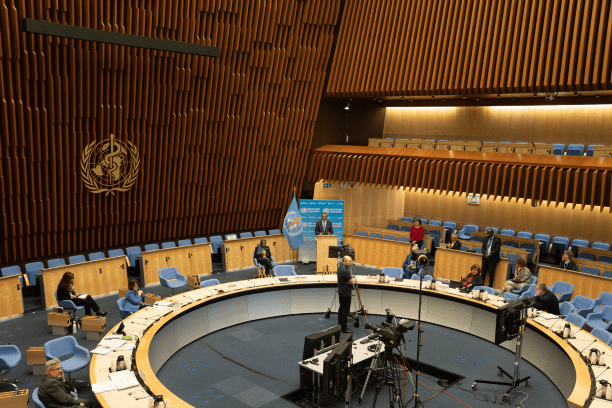The decision-making body of WHO has adopted a resolution expressing support for WHOs role in coordinating the global response to the COVID-19 pandemic. Calls for an external investigation of the response were replaced by a request to WHO’s Director-General to initiate an evaluation of lessons learned at his own timing.
The 7-pages long resolution was proposed by a number of WHO member states, including the EU and its member states, to the seventy-third World Health Assembly on 18 – 19 May. Due to the pandemic, the meeting was virtual.
In a joint statement by High Representative Josep Borrell and Commissioner Stella Kyriakides, the EU welcomed the adoption of the resolution by consensus by the member states of WHO.
The resolution underlines the importance of responding to the crisis through solidarity and multilateral cooperation under the umbrella of the United Nations, says the EU statement. “We commend the WHO for its leading role in guiding the response to this crisis.”
In the resolution, the World Health Assembly acknowledges the “key leadership role of WHO and the fundamental role of the United Nations system in catalysing and coordinating the comprehensive global response to the COVID-19 pandemic and the central efforts of Member States therein.” The Assembly requests WHO to continue to build and strengthen its capacities at all levels.
In the beginning of May, defending WHO against allegations of not acting in time to alert the world about the outbreak of the pandemic, the WHO Director-General, Dr Tedros Adhanom Ghebreyesus, said that, “From the beginning, WHO has acted quickly and decisively to respond and to warn the world. We sounded the alarm early, and we sounded it often.”
Asked by The Brussels Times at the daily press briefing (19 May) if the European Commission supports an investigation of WHO’s response to the outbreak of the coronavirus, a spokesperson referred to the resolution which was still in draft form.
In this regard, the adopted resolution requests the WHO Director-General to initiate, “at the earliest appropriate moment, and in consultation with Member States, a stepwise process of impartial, independent and comprehensive evaluation, including using existing mechanisms, as appropriate, to review experience gained and lessons learned” from the WHO-coordinated response to COVID-19.
The resolution also requests the Director-General to “continue to work closely with the World Organisation for Animal Health (OIE), the Food and Agriculture Organization of the United Nations (FAO) and countries, as part of the One-Health Approach to identify the zoonotic source of the virus and the route of introduction to the human population.”
“It’s easy to be wise in hindsight,” said Professor Didier Houssin, chair of WHO´s Emergency Committee of independent experts, a body which gives advice to WHO, at a previous press conference. After the crisis is over, there will probably be resumed calls to hold WHO accountable and to know more about the decision-making process inside the organisation.
In their statement, Borrell and Kyriakides did not seem to exclude an evaluation of EU’s response. “The resolution also recalls the need for all of us to evaluate our performance. An independent investigation of how this pandemic started and spread will be important, as we will need to draw lessons from the current crisis to strengthen our global preparedness for the future.”
The situation is still evolving. The chief spokesperson of the Commission added that the time would come to draw the lessons learned of the joint response to the crisis by the Commission and the member states.
Such a review or audit would have to be carried out by an independent body. The press office of the European Court of Auditors (ECA) told The Brussels Times that the audit institution - as part of annual stakeholder consultation - has already received suggestions for audit topics from European Parliament committees before the pandemic but declined to comment on any specific suggestions.
“In addition, we recently invited the parliamentary committees to submit any additional, COVID-19 related suggestions that we could further consider when preparing our 2021 work programme. We’ll carefully assess any suggestions that we may receive, but of course decide in full independence and discretion which topics will finally be part of our work programme,” the ECA spokesperson said.
M. Apelblat
The Brussels Times

